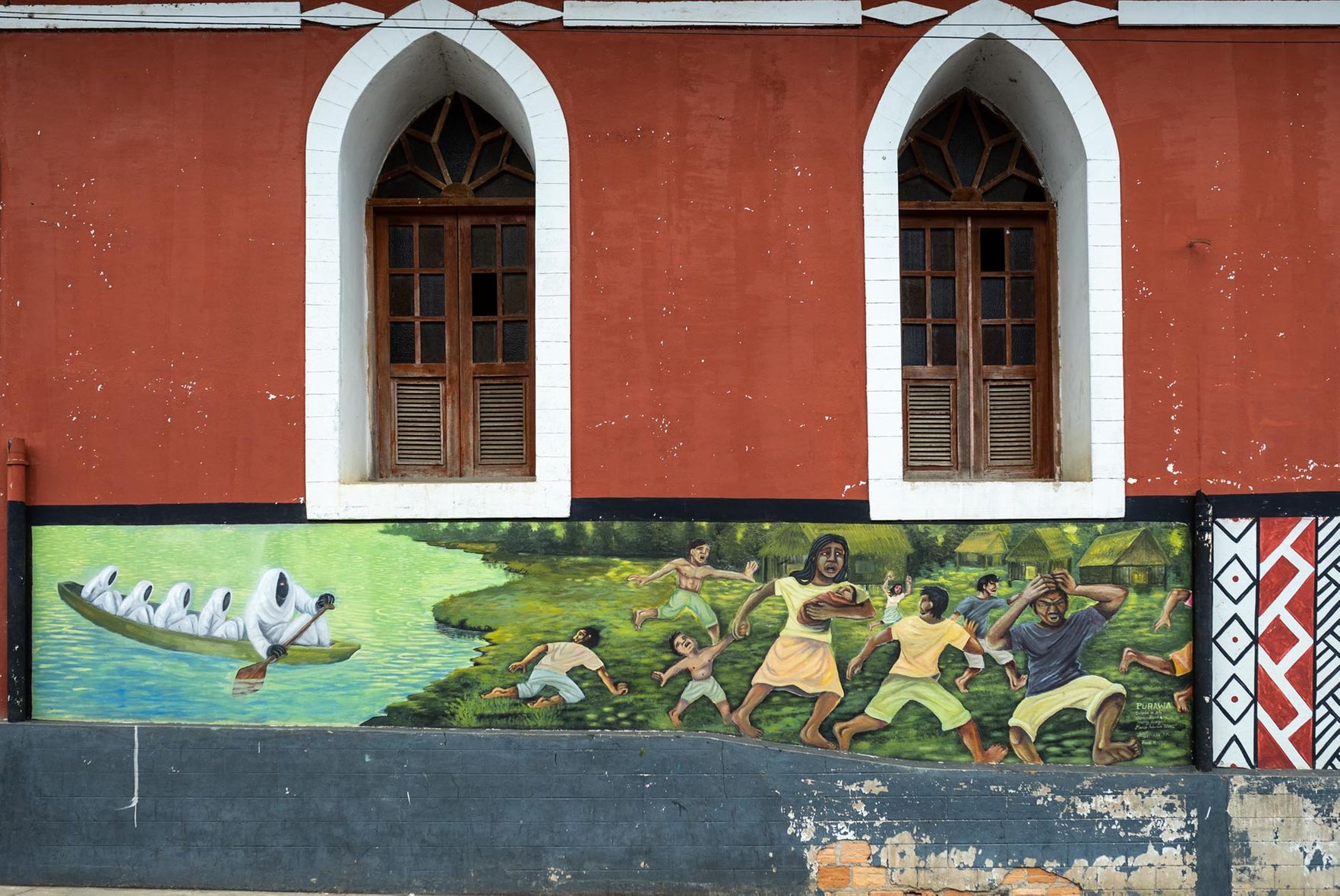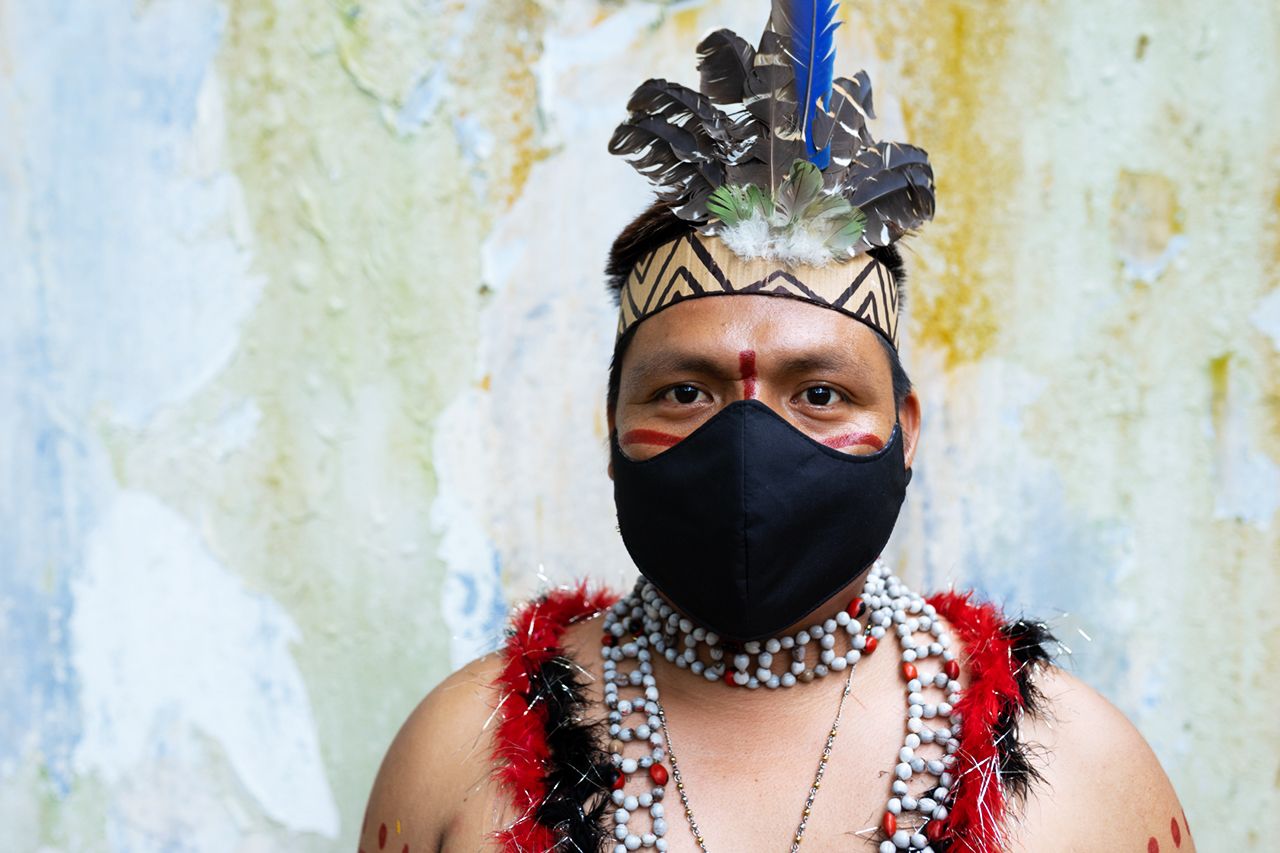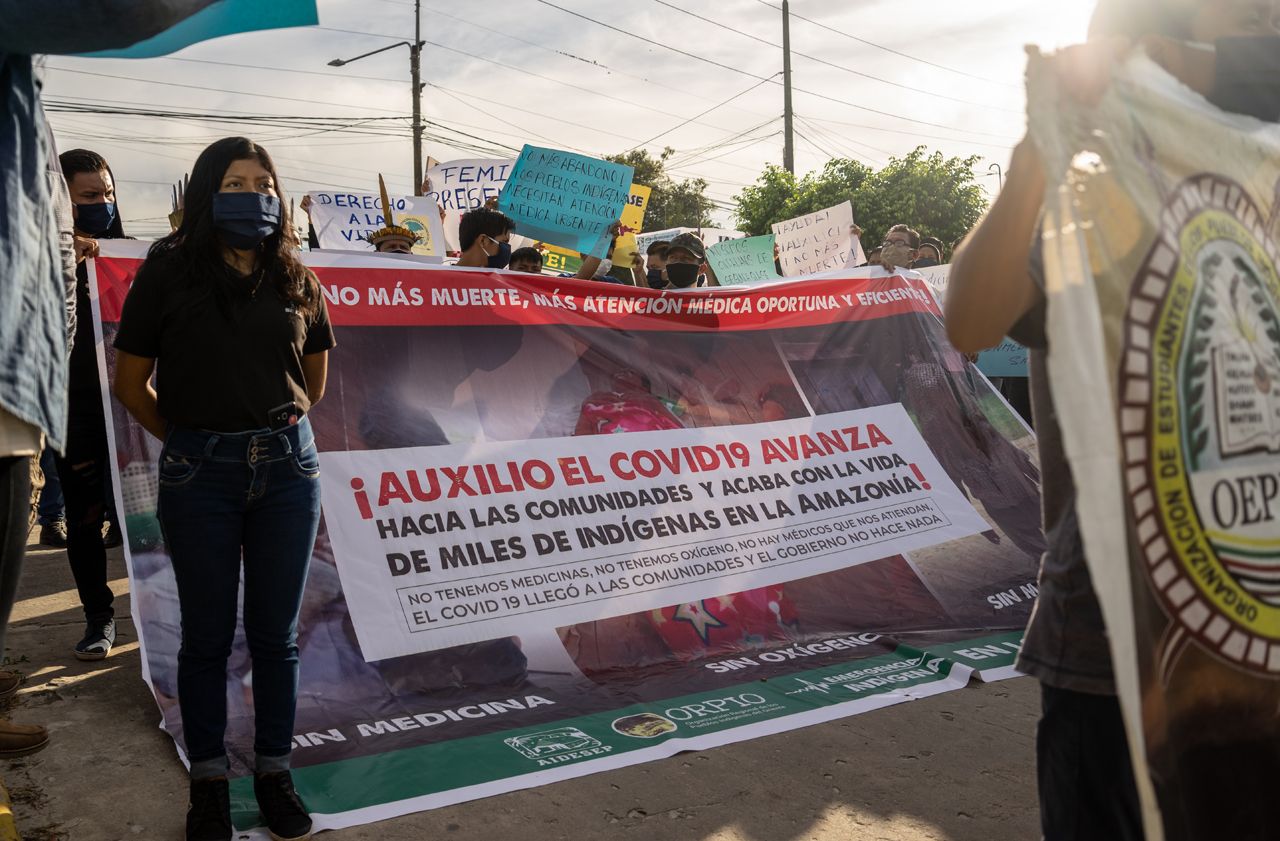By
On October 12th of 1492, Columbus and his fleet set foot on the Americas, on what is today known as the Bahamas. More than five centuries later, this event continues to generate discussion about how such a significant date should be commemorated. Currently, anti-racial discrimination movements are emerging in many parts of the world, questioning the historical role of colonizers, slavers and European explorers. It is necessary to reflect on what we remember today. The “discovery” of America, the arrival of Columbus, or International Day of the Race is what has generally been celebrated on this day. More progressive circles, however, have started decades ago to commemorate the date as the day of the original peoples and intercultural dialogue, day of the struggle of native Americans against the Spanish conquistadores, or simply as Indigenous Resistance Day.

In 2020, in light of the Covid-19 pandemic, this reflection gains new importance. It is not the first time that indigenous communities in the Amazon are affected by an imported disease. Since the time of European conquest of the Americas, various waves of diseases introduced by the colonizers have had devastating effects on the indigenous populations, dramatically reducing their numbers in the Amazon region. Some of these traumatic encounters still survive in these peoples’ collective memory in the form of stories. The Kukama-Kukamiria people remember that smallpox, personified in white-hooded ghost-like creatures, came down the river in long canoes. When people saw them, they escaped into the jungle, leaving their houses and animals behind.
Today, in the 21st century, when humanity believes that we have reached unprecedented control over nature, thanks to technology and science, the Corona pandemic reminds us of our limits and fragility. The so-called “invisible enemy” has spread around the world at extraordinary velocity, taking advantage of the great mobility of a globalized world. Beyond its seductive promises of development and progress, the deep gaps, inequalities and contradictions of the socio-economic model that we have built are being exposed by the pandemic in all their magnitude. "The injustices have been revealed."
Once again, indigenous peoples face an epidemic in a situation of extreme vulnerability. Basic health and other public services are almost non-existent in their communities. The pandemic hits them as health conditions are already precarious, due to the prevalence of childhood anaemia and widespread tropical diseases such as dengue or malaria. protección social.

The impact of Covid-19 on Amazonian communities is potentially disastrous and, at the same time, difficult to assess. Taking into account that the disease seems to be most harmful to the elderly, there is a high risk of losing invaluable ancestral knowledge preserved and passed on by them. From the economic perspective, the increasing dependence on external products and trade means that many communities face serious difficulties in obtaining certain foods, fuel or essential tools. Another consequence is that families struggle to economically support the studies of their children.
Against this backdrop, without ceasing to claim their basic rights and demand support from the authorities, indigenous peoples have organized themselves to face the disease: they have closed access to their territories and have isolated themselves in their houses or on their farms (often some distance away from their homes), and have resorted to traditional medicine whose power resides in the "mothers" or protective spirits of the plants. Remedies based on the matico tree (Piper aduncum), ginger, a local variety of garlic, huito, lemongrass, lime, or onion, among others, are helping many people to cope with Covid-19, reduce symptoms and avoid worse conditions.

In indigenous worldviews, disease and healing processes take place in the spiritual world. The well-being and health of a person, or of a community, are not only matters of the physical body, but depend on the relationships between humans and other beings of nature, personified in what indigenous peoples may call "mothers" or "dueños" (translated as “owners”). For this reason, shamans and healers ask permission or help from these spirits, invoke their power, dialogue and negotiate with them to restore balance.
Modern science also generates more and more information about the deep interrelationships of natural processes and how the health of ecosystems effects our own well-being. The destruction of natural habitats, the confinement and indiscriminate consumption of animals, the use and abuse of nature without asking permission, without negotiation, without respecting life in its many forms, may be identified by many – in particular indigenous peoples - as the true origin of this pandemic and other global problems that threaten our existence.
The Covid-19 pandemic will pass, but others will follow. It is necessary to learn the lesson, to listen to the voices of elders, wisdom keepers and researchers, to indigenous cosmovisions and science. There are no excuses. It is not merely a question of medicines or vaccines; we have to rethink our relationship with the other beings that we share this planet with. Let us use this traumatic experience of the pandemic in our favour. Today we celebrate interculturality. We honour and value ancestral indigenous knowledge, which makes us remember our origin. An origin in symbiosis with the natural world that surrounds us, that we are a part of, and which provides what we need to live a good life.

